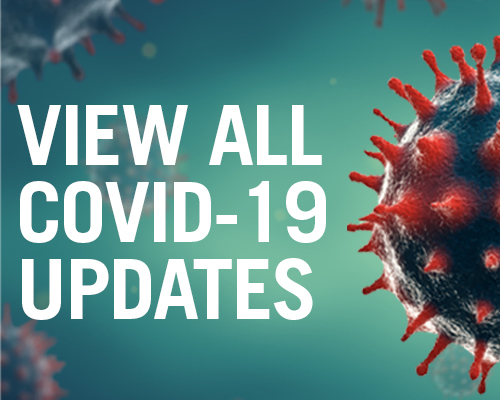Italian Data Uphold Idea That Mild Obesity Raises COVID-19 Risks
Physicians should be aware that obesity of any degree can alter patients’ prognosis, the study’s lead author says.

COVID-19 patients whose body mass index (BMI) places them just over the threshold for obesity are at higher risk of developing respiratory failure and being admitted to an intensive care unit compared with normal-weight individuals with the disease, observational data from Italy confirm.
A BMI of at least 35 kg/m2carried the highest risk in this single-center study of hospitalized patients. Even so, patients whose BMI fell between 30 and 34.9 kg/m2 fared worse than those with a BMI below 30 kg/m2.
As the investigators point out in their paper, published yesterday in the European Journal of Endocrinology, these results dovetail with those of earlier reports suggesting that obesity—even when mild—makes patients vulnerable to worse COVID-19 outcomes. Moreover, the US Centers for Disease Control and Prevention also sets the BMI bar at 30 kg/m2. Whether obesity holds a causative role in weakening the lungs, is merely a marker of less-optimal health, or affects inflammation and the immune response to SAVS-CoV-2 isn’t yet known.
Lead author Matteo Rottoli, MD (Sant'Orsola Hospital, Bologna, Italy), told TCTMD that he hopes the growing body of evidence will inspire greater awareness among patients and practitioners that all levels of obesity are a risk factor in COVID-19, much like older age or other comorbidities.
People with obesity “should be considered a population at risk,” he stressed, adding, “They should take extra care regarding their social behavior, distancing. . . . They should use masks. They should avoid risky situations, such as gatherings.”
I think that this is what happens with patients with obesity—they have an initial cause which is the same as the other people, but they can deteriorate towards a severe outcome quite quickly. Matteo Rottoli
Much like patients otherwise considered “frail,” Rottoli said, clinicians should be aware that obesity can put patients on a different path. “With COVID-19, there is an initial infection and there is an initial clinical picture which could be not very severe but [deteriorate] after a few days. And these patients might need an intensive care admission in a very short time, might need mechanical ventilation even if the day before they were well,” he explained. “I think that this is what happens with patients with obesity—they have an initial cause which is the same as the other people, but they can deteriorate towards a severe outcome quite quickly.”
Population at Risk
For their retrospective cohort study, Rottoli and colleagues looked at 482 patients with confirmed COVID-19 who were admitted to their hospital between March 1 and April 20, 2020. Follow-up lasted through April 27, meaning that all patients were analyzed regardless of whether they had been discharged, were still in the hospital, or had died.

Around one in five patients in the cohort were obese: 17.4% had a BMI of 30 to 34.9 kg/m2 and 4.1% had an index of 35 kg/m2 or higher. Comorbidities were common among the obese patients; for example, 72.8% had hypertension and 26.0% had type 2 diabetes. Within 30 days of symptom onset, 51.9% had respiratory failure, 36.4% were admitted to the ICU, 25.0% needed mechanical ventilation, and 29.8% died.
On logistic regression analysis, patients in both obesity categories saw an increase in respiratory failure and ICU admission over normal-weight individuals. Those with a BMI of 35 kg/m2—but not mildly obese patients—also had an increased risk of death. A time-to-event model, performed to address the fact that some patients were still hospitalized at the conclusion of follow-up, confirmed these results.
COVID-19 Outcomes, BMI ≥ 30 Versus < 30 kg/m2
|
|
OR |
95% CI |
|
Respiratory Failure 30 to 34.9 ≥ 35 |
2.32 3.24 |
1.31-4.09 1.21-8.68 |
|
ICU Admission 30 to 34.9 ≥ 35 |
4.96 6.58 |
2.53-9.74 2.31-18.70 |
|
Death 30 to 34.9 ≥ 35 |
1.71 12.10 |
0.80-3.64 3.25-45.10 |
Each 1-unit increase in BMI was associated with higher risk, but patients who were overweight (BMI 25 to 29.9 kg/m2) did not have significantly worse outcomes than those at normal weight. “In fact, in all models, the BMI cutoff determining an increase of risk was 30,” the researchers note.
These data, though informative in terms of educating the public about risk, don’t speak to mechanism, Rottoli noted. What’s known from previous studies is that obesity is linked to “impaired immunological response and defense against pathogens,” he said. Reasons for this association include alterations in the lung environment and higher levels of proinflammatory cytokines characteristic of a chronic inflammatory state. “So what happens is there is a late response to the virus, but when this response happens, it is too strong of a response basically, so there is damage to the body as well. Also, patients with obesity have a higher viral load . . . and take more time for the virus to clear from their bodies, so there is a longer time of viral shedding,” Rottoli said.
Asked whether obesity-related inflammation influences the hallmark cytokine storms seen in COVID-19, Rottoli told TCTMD that this is the next stage of this research. “There is great awareness in the scientific community about the relationship of obesity and bad outcomes. Everybody is trying to find out why, because I think this could help us understand how this virus works, not just in people with obesity. I think that it’s going to help us to understand: here are the mechanisms that can explain why this virus can bring a disease without any symptoms in one patient and bring another patient to death,” he said.
For now, though, a key point is being aware that many people fit the definition of mildly obese without even realizing it. “It’s very important for people who think they’re obese, or might be obese, to speak with their doctor and actually find out,” especially since there may be a second wave of COVID-19 on the way, Rottoli advised.
Caitlin E. Cox is Executive Editor of TCTMD and Associate Director, Editorial Content at the Cardiovascular Research Foundation. She produces the…
Read Full BioSources
Rottoli M, Bernante P, Belvedere A, et al. How important is obesity as a risk factor for respiratory failure, intensive care admission and death in hospitalised COVID-19 patients? Eur J Endocrinol. 2020;Epub ahead of print.
Disclosures
- Rottoli reports no relevant conflicts of interest.


Comments